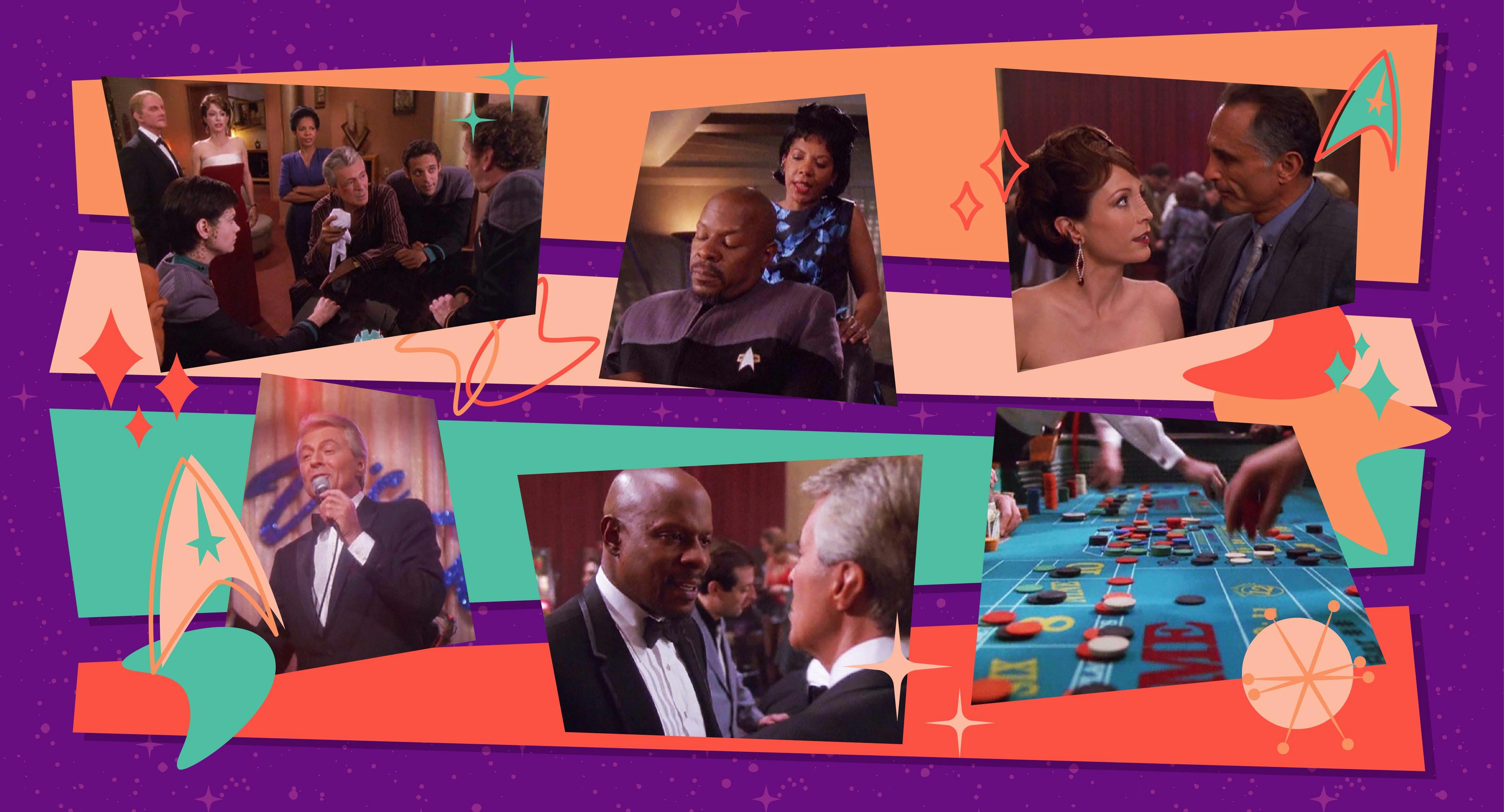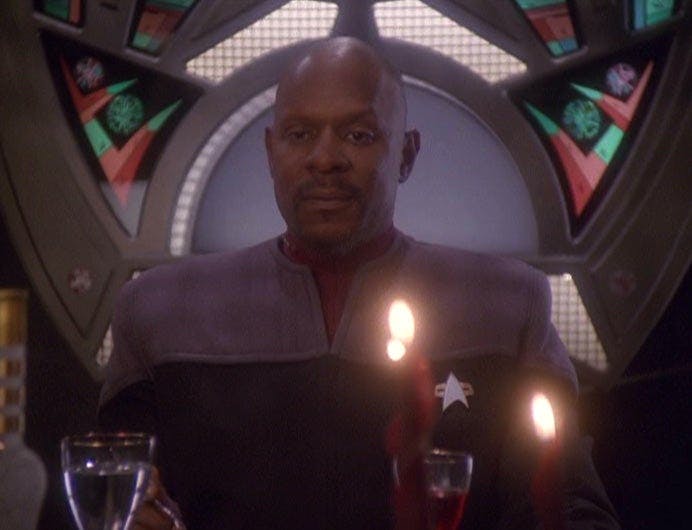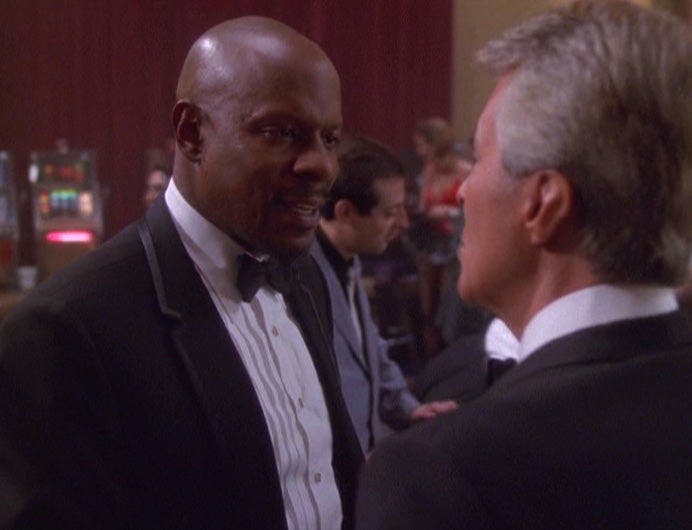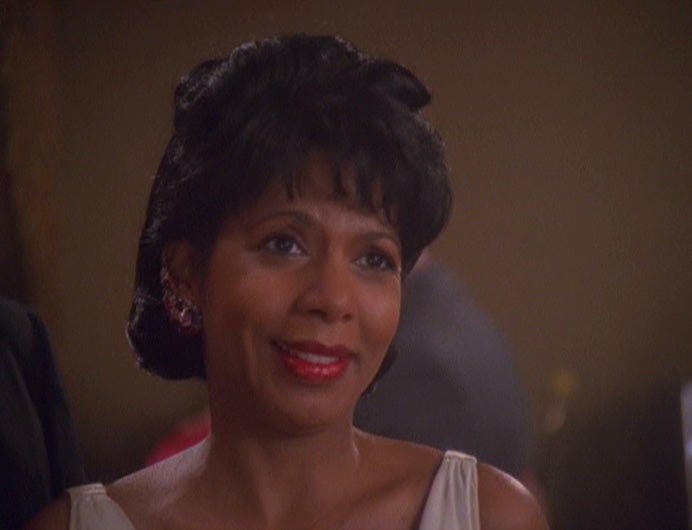Published Sep 8, 2022
Badda-Bing Badda-Bang: Fandom Discourse In the 24th Century
DS9 deftly demonstrates the community strengthening benefits of fandom along with a peek at what 24th-century discourse might look like.

StarTrek.com
When compared to other holodeck malfunction episodes, “Badda-Bing, Badda-Bang” is pretty low stakes. Leaving aside that Vic Fontaine is a sentient being, and the Federation should probably regulate the creation of sentient beings for holo-content a little more stringently, the most that will go wrong if this caper is unsuccessful is that Vic will lose his memories and have to get reacquainted with the crew. But understandably, the crew is unwilling to give up the bond they already share with their holo-homie so they do what any elite Starfleet crew (aka nerds) would do and dedicate all their free time to a complicated and ingenious plan to restore their favorite hangout spot.
Vic Fontaine - Star Trek: Deep Space Nine's Most Famous Hologram
The stakes in this episode are wholly personal. There is no Dominion plot to thwart or rancorous allies to appease. However, the threat to Vic’s Lounge feels important for the crew and the audience because it has served as the backdrop to some of the most joyous and therapeutic events in many of the characters’ lives. The thing about this episode is that it’s the one that most closely resembles modern fandom much in the same way, "It’s Only A Paper Moon" reflects the role online addiction can play in the life of someone suffering from depression.
As Bashir and his party prepare to solve this surprise strategy roleplaying game his friend Felix sprung on him, we see Sisko a few times throughout this process. At first, he’s just a boss understandably peeved that his whole staff is just standing around goofing off. We know he does socialize and even gossip with his crew fairly regularly, but we also know he can be a no-nonsense kind of leader too so this quick snark might raise a few flags, but for many, it flies right under the radar.

StarTrek.com
However, toward the end of the first act, we get confirmation that something is bothering Sisko while he’s having dinner with Kasidy. He’s visibly perturbed by her involvement in the caper. Kasidy thinks he is being over-serious at first, but then he gets defensive when she asks why he’s never been to Vic’s Lounge. This understandably confuses and annoys her. It intrigues the viewer because we know something’s up with Sisko, but we’re not sure what it is. Sisko comes off like the joyless stick-in-the-mud, who berates his partner’s interests, an experience that many fannish people have encountered.
In the third act, Sisko explicitly states why he is annoyed by Vic’s Lounge and everyone’s investment therein. He doesn’t feel it’s appropriate to spend so much time in a simulation that erases the reality of 1960s Las Vegas and seems nonplussed that Kasidy would be this much of a Vic’s Lounge fan. Back when "Badda-Bing Badda-Bang" aired, I remember someone on Trekbbs complaining that Sisko's position sounded more like the voice of Avery Brooks and less like the character of Benjamin Sisko.
I could see where the commenter was coming from; to the people of the 24th Century, racial discrimination is a relic of the past, so Sisko's objections might seem out of place. But, I disagree based on what we already know of Benjamin Sisko as a character. It's not a stretch to presume that the Sisko who scowls at Dukat's narcissistic revisionist history of the Bajoran Occupation would find it similarly distasteful for humans to create seductive period-specific programs that erase the realities of humanity’s repressive past.

StarTrek.com
We also know that Sisko is an avid collector and admirer of pre-colonial Yoruba art, adorns himself in mud cloth vests, and observes centuries-old New Orleanian cooking traditions when he’s off duty. Sisko is a student of history. The documentary What We Left Behind acknowledges that Avery Brooks influenced some of the specifics of Benjamin Sisko’s aesthetic and attitude over the run of Star Trek: Deep Space Nine. These bits of flavoring were dispensed over the seven-season run so the groundwork had been laid. Sisko’s distaste for dissembling and his interest in culture offered an opportunity for Star Trek to talk about the dangers of blindly taking in content. Keep in mind, Sisko is not just responding to this one program but a culture that regularly creates sanitized holo-programs for the masses.
Sisko understands that to maintain and nurture a society where most people can thrive and be happy, they can't lose sight of the unsavory past. A society that regularly glosses over the past will forget the lessons it taught. After all, he's the same man who had learned the fragility of paradise three years prior when he had to derail a coup attempt on Earth. And on a personal note, he had a psycho-spiritual awakening when the Prophets decorporealized him and made him inhabit the construct of Benny Russell as a teaching tool.

StarTrek.com
Ultimately, Kasidy puts a poignant button on the discussion by defending her ‘problematic fave’ holo-program as the way it could have been and should have been in reality. Sisko relents and winds up having an amazing time with his friends, but it doesn't mean it wasn't a worthy conversation for them to have especially in front of a 1999 (and 2021) audience who are FAR from living in anything that could reasonably be considered "paradise."
This article was originally published on March 8, 2021.
Crystal Sparrow (she/her) is a writer in transition currently training to become a Voice Over artist. She has written for IGN, Looper, The Verge, Blavity, and other publications. She can be found at wordyblerd.com and @wordyblerd on Twitter and YouTube.
Stay tuned to StarTrek.com for more details! And be sure to follow @StarTrek on Facebook, Twitter, and Instagram.

